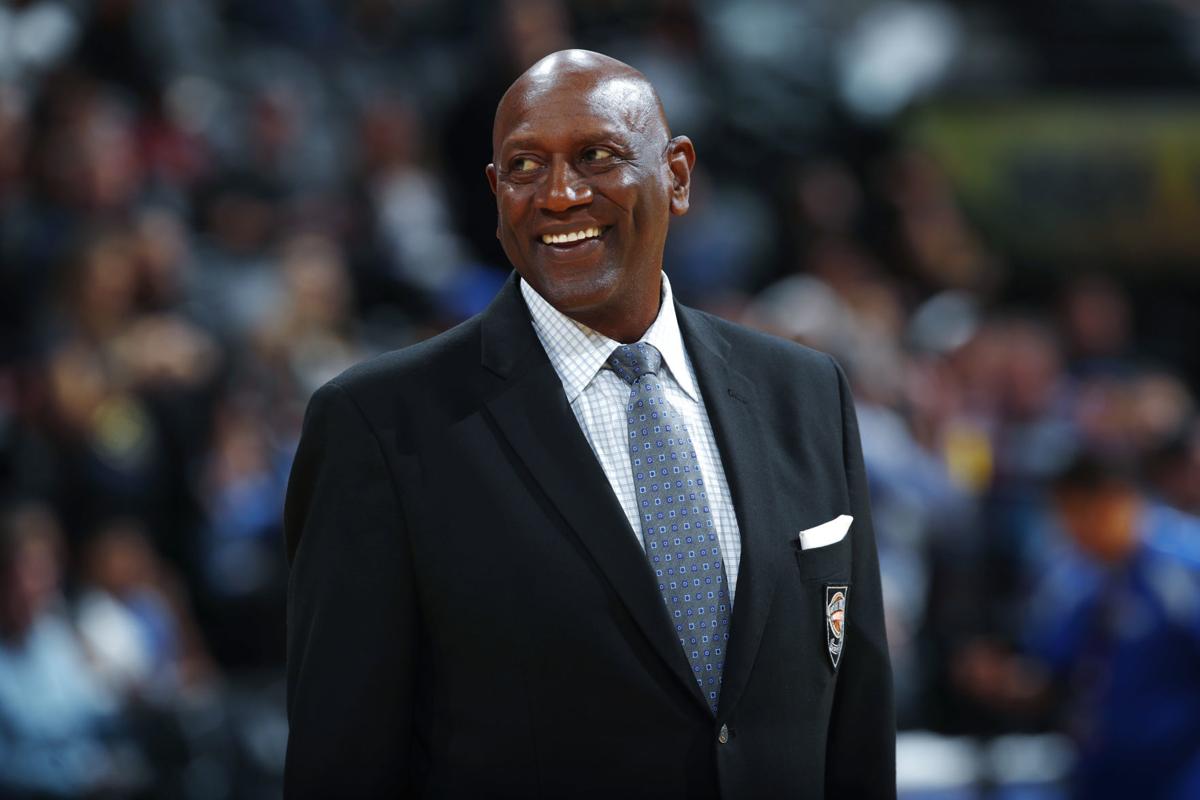The public address announcer interrupted the pre-game warmups with an announcement.
“Ladies and gentlemen,” he said, “we have an illegal player, No. 24, and he must be escorted out of the arena.”
The man wearing No. 24 was Spencer Haywood of the Seattle Supersonics. The year was 1970, and Haywood was suing the NBA for the right to play in the league even though he wasn’t the requisite four years removed from high school.
Haywood’s case went all the way to the Supreme Court, which in 1971 ruled 7-2 in his favor — opening the doors to thousands of players entering the NBA draft early.
The 68-year-old Haywood shared stories about the NBA and activism during Tuesday’s Sports Management Speaker of the Year at the UA’s Eller School of Management. The NBA Hall of Famer went off script during his speech after he said he felt something different and special in the room.
Maybe it was the audience. Haywood says only 10 percent of current NBA players know who he is or about the trail he blazed for them. Most who know are the younger players who are meeting Haywood through the NBA’s rookie transition program.
Haywood was “a beast on the court,” said UA basketball great Bob Elliott, a friend and former high school teammate. He averaged 30 points and 19.5 rebounds per game in his lone season with the ABA’s Denver Rockets, earning rookie of the year and MVP honors.
He went on to play 13 more years of professional basketball for the Supersonics, Knicks, Bullets, Jazz and Lakers; he also played professionally in Italy.
Haywood said his lawsuit against the NBA was about standing up and doing the right thing. Few players supported him, he said. They were all afraid of losing their contracts.
Haywood said one player — Kareem Abdul-Jabbar — stood above the rest, and not just because he stands 7 feet 2 inches tall.
“Kareem stood up and said I would add value to the league,” said Haywood. “He always stood up and still is. Kareem was the most misunderstood player I’ve ever seen. He is funny, witty, gives of himself and stands for something. …
“He won three college championships and six NBA championships and was a leader in all categories.”
The next generation of NBA players did not carry on the fight that was started by Bill Russell and went through Abdul-Jabbar, Haywood said.
“What happened? Their conscience became the dollar,” he said. “They thought about how much I make; I got $100 million. How can you enjoy this when no one else has it? I look to help other people. I have to give first to receive.”
Michael Jordan, who most others consider the greatest basketball player of all time, is one of those who Haywood looks at with disappointment. Last year, however, Jordan gave money to the NAACP and the police to help bridge the gap with the strife going on in the cities in our country.
“Michael is talking a good game,” he said. “It’s low fruit and a way to not take any risk; no one will get mad at him. … I hope he gets more involved.”
Not everyone from that generation of players gets a knock from Haywood. Former UA standout and current Golden State Warriors coach Steve Kerr continuously uses his voice to urge change in the world. Haywood calls Kerr “a special, special man.”
“When we see each other, we always embrace,” Haywood said. “When I hear him talk, I hear myself talk. It’s beyond basketball; it’s spiritual.”
Current players are using their voice to speak out on social issues. And, last fall the players association gave $16 million to fund health care for retired players.
The players in the league who made it happen — Steph Curry, LeBron James, Chris Paul, and Dwyane Wade — are some of the same players who have taken stands. And they understand the significance of the Spencer Haywood rule. There’s parity in the league. Players blossom earlier, and over the duration of their careers, make more money.
“LeBron said, ‘This man, he made me an extra $2 million,’” Haywood said. “He has played 15 seasons. Before the Spencer Haywood rule, he would have played 10 or 11. This is the economic value of what I’ve done. All this revenue I brought to these families — the uncles, the aunts, even the grocery store owners (in the neighborhoods). It’s all connected.
“It all comes back full circle. The way LeBron stands up and does for people, not just his people but people. I’m proud of all these guys.”





